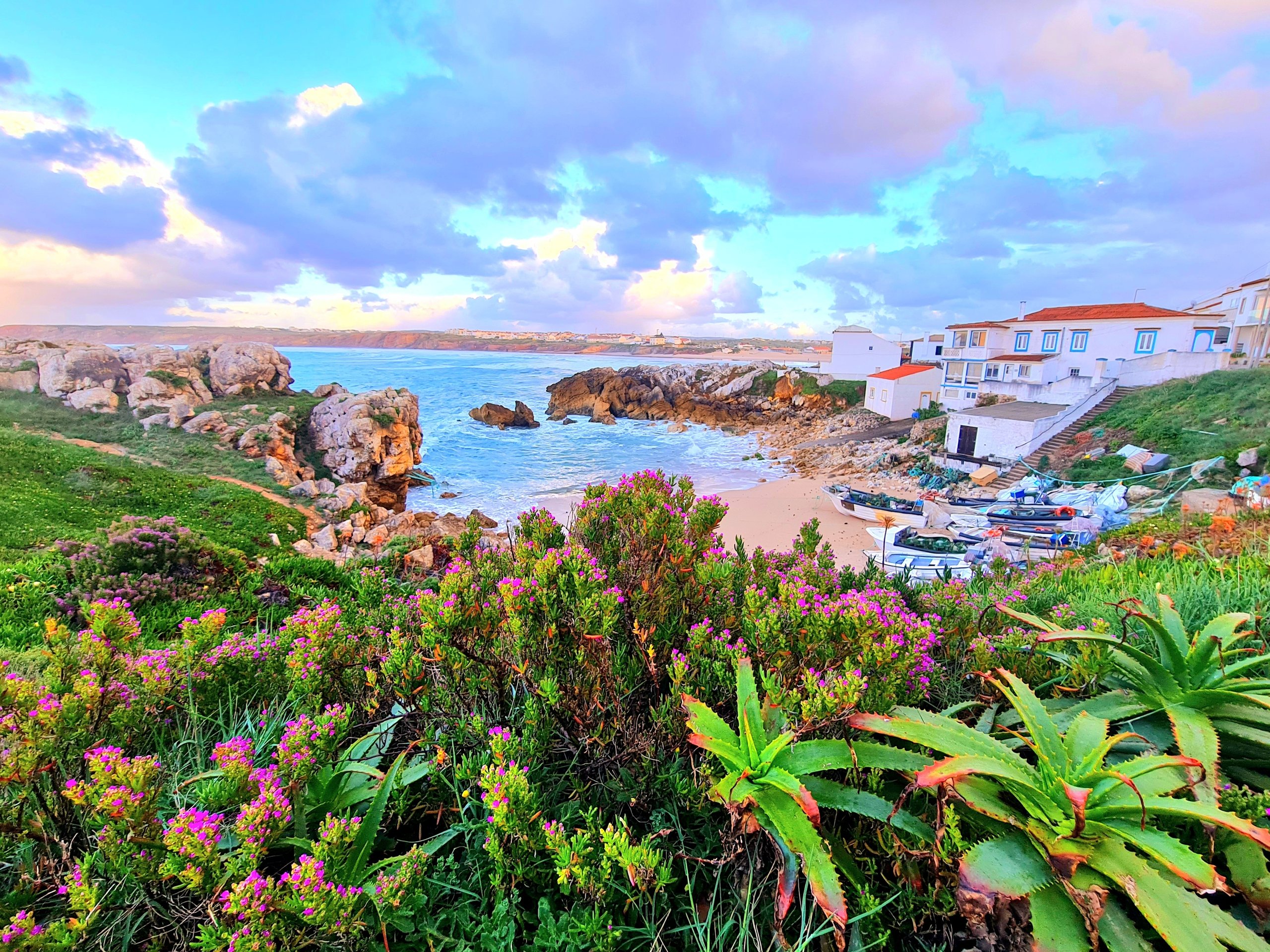Renovating a property in Portugal is one of the most rewarding ways to shape your dream overseas home – but knowing the rules can make all the difference. What’s fairly straightforward in one country can become a legal headache elsewhere. You need to properly research how to renovate your home in Portugal before moving ahead.
Whether you’re hoping to modernise a rustic farmhouse in the interior or breathe new life into a beachside villa, it’s crucial to understand the local rules, timeframes and how to find trusted professionals.
In this article, we’ll take the stress out of navigating Portuguese building laws and give you practical advice for getting your renovation right – from planning permission to finding skilled tradespeople who speak your language (literally or figuratively).
Contents

Planning permission to renovate your home in Portugal
Planning rules in Portugal are set and enforced by local authorities, known as câmaras municipais. These regulations vary from one municipality to another, so it’s essential to speak directly with your local câmara or have someone bilingual do it for you.
If you’re only updating interiors – say fitting a new kitchen, restoring tiled floors or repainting walls – it’s usually classed as internal renovation and doesn’t require planning permission. However, once you alter the structure of a property (like knocking through walls, adjusting floor levels or changing windows), you may need authorisation, even for internal work. This threshold is lower if the property is old or listed.
External work is more stringently regulated. Building an extension, replacing the roof or changing the façade will ordinarily require full planning permission. This process involves submitting formal architectural plans, which must be approved by the local câmara. You’re also required to register the completed work correctly – including obtaining the final habitation licence (licença de utilização), which is vital for resale or rental.
As of 2025, plans to simplify bureaucracy are underway, but local interpretation of rules can still feel slow and inconsistent. Portugal’s pace of life is famously relaxed – often charming, sometimes maddening – but patience is absolutely essential. Most municipalities list their planning requirements online, but assuming they’re up to date can be risky. Always confirm in person or via your property lawyer.
For a closer look at buying your home abroad, grab you your free copy of Portugal Buying Guide:
Download the Portugal Buying Guide
Renovating responsibly in protected areas
Portugal is home to stunning landscapes and historic sites protected under conservation laws. If your home lies within a national park, cultural heritage zone or rural development restriction area (REN/RAN), you’ll need special permissions before carrying out even minor work. These areas are often marked on cadastral maps, which a local architect or planning consultant can check for you.
In these designated zones, you may need permission from environmental or heritage authorities in addition to the local town hall. This doesn’t mean you can’t renovate – but you may face tighter limitations. For instance, you might be forced to retain original building materials or restrict changes to a property’s roofline.
Although some builders or tradespeople might offer to carry out work without seeking official approval, doing so places you at risk. If you later try to sell, rent or insure the property, unauthorised works could cost you dearly – and undoing changes or paying fines isn’t easy. Portugal’s building regulations are increasingly regulated via digital systems such as the Balcão do Empreendedor platform, where renovations must be recorded.
It’s easy to fall in love with a countryside ruin or cliffside cottage, but if you’re keen on a project in a scenic or historical area, speak to a qualified architect before signing. They’ll estimate what’s realistically possible and help you avoid expensive surprises.
Working with architects and lawyers to renovate your home in Portugal
If your renovation plans involve planning permission, you’ll likely need an architect – not just for design but to open the application with the câmara. A local architect will prepare all the necessary documents, usually including a technical description of the works, impact studies and proposed materials. Fees vary, but you should budget around 6–12% of the total project cost for a full service, including design and supervision.
It’s advisable to select an architect familiar with the area and experienced in working with foreign clients. This ensures a smoother application process and avoids misunderstandings over what’s allowed – or how long something will take.
If you’re not fluent in Portuguese, you’ll also benefit from employing a bilingual Portuguese solicitor (advogado) with experience in property transactions. They can check local zoning laws, verify planning permissions and make sure the building is officially recorded. In some areas, additional authorisation from tourism agencies or ministerial bodies may be needed, especially if the building will be used for rentals.
In Portugal, permission to renovate isn’t open-ended. Once granted, you’ll be given a window – often 1 or 2 years – within which to start and complete works. Miss that window, and you could face having to apply all over again. Your solicitor should keep track of this and flag any deadlines in advance.
Choosing licensed contractors in Portugal
Choosing the right tradespeople is the key to a successful renovation project in Portugal. While some foreign buyers consider hiring builders from back home, it can cause complications if the contractors aren’t qualified locally. For example, UK electricians may not be legally allowed to carry out work in Portugal. To comply, that work must be signed off by a certified Portuguese technician – otherwise, it’s not officially recognised.
You should only hire builders, electricians and plumbers who are fully licensed and registered. In Portugal, builders should hold certification from the Instituto da Construção e do Imobiliário (InCI) or be listed on the Plataforma de Registo de Técnicos e Empresas (PRTE). Don’t be afraid to ask for their credentials, tax registration number and proof of insurance.
Word-of-mouth, recommendations from neighbours and estate agents, and local Facebook groups can be excellent starting points. But once you’ve found someone reputable, get everything in writing. A detailed contract should include deadlines, payment stages, material costs and what happens if work is delayed. Portugal’s consumer codes are protective, but enforcement often takes time – having everything documented saves stress later.
It’s also worth noting that qualified workers are in high demand, especially in tourist hotspots like the Algarve, Lisbon or Porto. Booking them in advance and building a buffer into your timeline can save your project from unnecessary delays. If you’re restoring a large property or converting a barn into rentals, consider hiring a bilingual project manager to oversee it all on your behalf.
What’s next?
Renovating a home in Portugal can be immensely fulfilling – a chance to create something uniquely yours. But it isn’t something to rush. Understand the rules, build the right team and embrace the local pace of life. After all, isn’t that part of the reason you chose Portugal in the first place?
If you’re ready to move forward with your renovation journey, speak to one of our property consultants. They’ll connect you with architects, legal experts and local tradespeople who understand what international buyers need – and how to make the process run smoothly. Whether you’re updating a coastal apartment or restoring a centuries-old manor, we’re here to help.
FAQs about renovating a home in Portugal
It depends on the work. Cosmetic updates often don’t require permission, but structural changes, external works or renovations in protected areas usually do. Always check with your local câmara municipal or a solicitor before starting.
Yes, but additional permissions may be needed from heritage or environmental bodies. You may be limited in materials or design changes, so always consult an architect familiar with conservation zones before buying or renovating.
Yes, for most structural renovations or projects that require planning permission. Architects prepare plans, handle applications and can oversee the build. Their fee is typically 6–12% of the project cost, depending on involvement.
Choose contractors certified by InCI or listed on the PRTE register. Ask for tax numbers, insurance proof and a written contract. Local recommendations and expat groups can help, but always verify credentials before hiring.
Once approved, renovation licences are time-limited. You usually have 1–2 years to start or complete the works. Missing the deadline may require reapplying, so have your lawyer monitor timelines closely.









